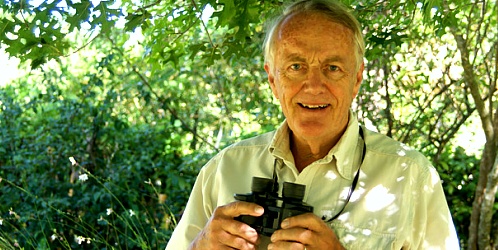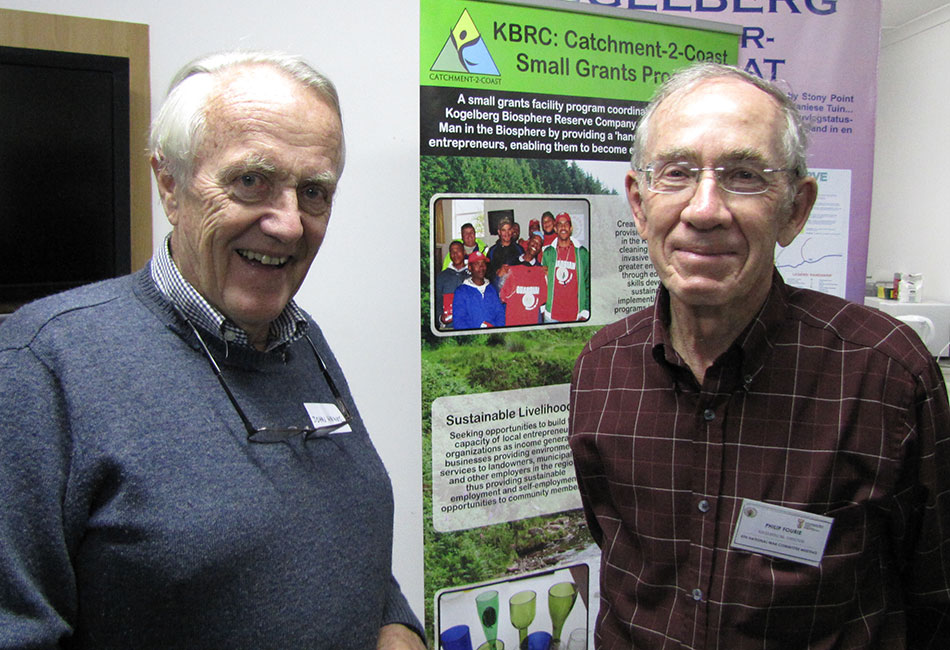John Hanks
zoologist, conservationist, author & consultant
Dr John Hanks
John has been a leading figure in Southern Africa’s conservation work for over 40 years. His past roles include: Director of the Africa Programme at WWF-International, Switzerland; Chief Executive, WWF-South Africa; First Executive Director of the Peace Parks Foundation; Director of Conservation International’s TFCA Initiatives and Wilderness Program in Southern Africa. John is currently working as an independent consultant and sits on several conservation boards.
John Hanks is a zoologist by training with his first degree in Natural Sciences from Magdalene College, Cambridge, followed by a PhD on the reproductive physiology, growth, and population dynamics of the African elephant in the Luangwa Valley, Zambia. He has over 45 years of experience in a wide variety of applied conservation management and research projects, working in several African countries, including Angola, Botswana, Ethiopia, Kenya, Mozambique, South Africa, Zambia, and Zimbabwe.
His most important postings have been: Chief Professional Officer for the Natal Parks Board; Professor and Head of the Department of Biological Sciences, then the first Director of the Institute of Natural Resources at the University of Natal; the Director of the Africa Program for WWF International (based in Gland, Switzerland); the Chief Executive of WWF-South Africa; the first Executive Director of the Peace Parks Foundation. He has published over 150 scientific papers. More recently he has worked on a variety of management plans for protected areas which have highlighted the vital importance of ecosystem services in regional and national economies, and has been giving priority to environmental education, concentrating on the identification and nurturing of the conservation champions and leaders of the future through his role of Chairman of the Lapalala Wilderness School and as a Senior Fellow of GreenMatter.Courtesy: Passage to Africa
PUBLICATIONS
Operation Lock and the War on Rhino Poaching by John Hanks - 2015
Operation Lock was born in 1987 when Prince Bernhard of the Netherlands, the Founder President of the World Wide Fund for Nature (WWF), met with British biologist and conservationist Dr John Hanks, the WWF’s head in Africa, to discuss what could be done to stop the aggressive illegal trade in rhino horn, which was threatening to make rhinos extinct as a species.
They agreed that the rhino horn trade should be countered with equal aggression. Hanks began discussions with Sir David Stirling, the founder of the British SAS, who now ran a private security company, KAS Enterprises, staffed by former SAS operatives. This company provided the personnel for what would become known as Operation Lock, and Prince Bernhard provided the money. Operation Lock set up its headquarters in Johannesburg, and extended its reach into neighboring states: Namibia, Zambia, Botswana, Swaziland and Mozambique. Its operatives planned to train game rangers, to go undercover and sell rhino horn themselves in order to entrap buyers, and even to kill the kingpins who were driving the trade. It was always going to be controversial, and even more so because it was working in and with apartheid South Africa in the late 1980s. When news was finally leaked, the WWF denied any involvement, and John Hanks took the fall. In Operation Lock and the War on Rhino Poaching, John Hanks finally tells the story of these explosive events from 25 years ago. Hanks has the inside knowledge, and all the documents, to reveal what really happened. The book also deals with the scourge of rhino poaching in more recent years, and it gives powerful and controversial criticism of some of the current policies to curb poaching.A Struggle for Survival: The Elephant Problem by John Hanks - Struik, 1979. ISBN: 0869771124
Go back to: Wildlife Guardians & Dedicated Conservationists
THREE GUIDING PRINCIPLES OF CONSERVATION - DR JOHN HANKS
1. I must echo the words of Sir Peter Scott, the Founder Chairman of WWF, who said: “The conservationist’s most important task, if we are to save the earth, is to educate.” Appropriate and focussed environmental education programs and activities should be widely embraced by every person and organisation involved in building a sustainable future for Africa. All countries, especially the very poorest, MUST protect their biodiversity and ecosystems that support life (clean water and air, soil nutrients, forests, fisheries and other key ecosystems) and to ensure that their cities are well managed to provide livelihoods and safe environments. The majority of Africa’s people are still directly dependent on natural resources for their livelihoods, with key resources such as grazing for animals, fuel wood, water, and access to productive land, all under pressure. The United Nations Environment Programme (UNEP) recommends urgent action to halt and reverse Africa’s environmental degradation, noting that the immense value of the continent’s environmental assets is particularly ill-understood. Against such a background, environmental education has moved beyond simply creating an awareness of Africa’s extraordinary celebration of diversity of fauna and flora (as it was when WWF started up in 1961) to become intimately entwined with issues of development, survival, livelihoods, improved quality of education and quality of life, and more sustainable living practices.
One of the biggest challenges facing all African countries is to move biodiversity conservation as encapsulated above right up on the political agenda where it will receive the required funding and political support so urgently needed. Global concepts and proposed action plans must be translated into proactive and continuous action at a national level, translated into a form acceptable to decision makers and general public. The identification, nurturing, mentoring and encouraging of the conservation champions and leaders of the future must receive priority attention. In addition, there is an urgent need for investment in training and capacity building in nearly every component of the work required to manage existing protected areas. The following subjects will need to receive attention, with training required from the community level through field-based extension officers to university graduates. - Management of protected areas, including the preparation and use of management plans, training of field rangers, basic infrastructure and vehicle maintenance, problem animal control, and comprehensive training in law enforcement and anti-poaching activities. - Developing sustainable CBNRM projects with emphasis on community tourism projects and the consumptive use of natural resources where applicable. - Training in all aspects of the tourism and hospitality industry, including field guiding, general service delivery and marketing plans. - Development and running of research and monitoring programs in the biological sciences and in socio-economics. - Project management skills including report writing and the preparation of project proposals for support from NGOs and aid agencies. - Veterinary training for disease monitoring and control programs. Surprisingly, although most conservation agencies and extension services related to the management of natural systems recognize that they have serious skill shortages, very little has been done to quantify these needs and to implement the required training programs. An Africa-wide survey of these skill shortages is urgently required with the results being brought to the attention of the relevant government departments, and to the NGOs which can help address these needs. 2. A second guiding principle is to increase support for projects and programs which have an exemplary and catalytic role in stopping the degradation of ecosystem services. These ecosystem services include physical products, such as food, timber and water (sometimes referred to as ‘goods’) as well as less tangible, but nevertheless essential services such as soil fertility and formation, climate regulation and cultural values. Underpinning the majority of these ecosystem services is the biological diversity that allows ecosystems to work reliably and efficiently. Far too many of the continent’s ecosystem services are being degraded, a consequence of a lack of awareness of their importance, increasing human encroachment into key natural areas and associated land transformation. This degradation is already having an economic impact, which will inevitably escalate as human populations continue their expansion and increasing demands for goods and services. For example, biodiversity and the ecosystem services it supports are crucial for successful agriculture, which is totally dependent on a wide range of species for such essential functions as pollination, the creation of genetically diverse plant and crop varieties, development of robust, insect or disease-resistant strains, crop protection and watershed control. In short, urban and rural populations, and major industries such as agriculture have a high level of dependence on the whole range of ecosystem services. Once ecosystems pass a certain threshold as a result of disturbance, they may not return to their previous level of service provision within a reasonable period of time. Failure to conserve and manage these services will limit our human development possibilities. Funding is urgently needed for carefully selected projects to stop the degradation of ecosystem services which meet as many of the following criteria as possible: - Exemplary and catalytic in nature (i.e. stimulate and lead to the implementation of similar or related activities elsewhere). - A continuous, equitable and sustainable program of activities, which is based on the premise that ecosystem services will be most effectively managed by giving all affected parties a stake. - An integrated management approach leading to a single, coordinated response which satisfies multiple objectives, such as an initiative which links job creation, poverty relief and ecosystem rehabilitation. - With changes in ecosystem services being difficult to predict, response strategies and projects that maintain flexibility will be better able to deal with unexpected events. 3. Support for the continent’s protected areas (the crown jewels for biodiversity conservation) to ensure that they are well managed and retain their ecological and territorial integrity. At the start of this millennium over 30,000 protected areas covered 13,279,127 km2, slightly less than 10% of the Earth’s land surface. These vitally important areas are the corner stone of global conservation efforts, contributing substantially to biodiversity conservation. This role is clearly recognized in the Convention on Biological Diversity (CBD), Article 8m of which calls for each Contracting Party to establish a system of protected areas where special measures need to be taken to conserve biodiversity. This in effect is both a global mandate for PAs and a specific responsibility for ensuring that these areas are properly financed and managed. Just within South Africa, the protected areas not only embrace some of the world’s most important biodiversity hotspots, but are also the basis for nature-based tourism, a sector that is benefiting significantly from the fact that travel and tourism are the fastest growing creators of new jobs in the world, with wildlife tourism attracting an increasing share of the market. The perilous state today of many of Africa’s protected areas and the valuable species some of these areas contain, such as elephants and rhinos, has come about as a result of a combination of factors, one of the most important of which is the inadequacy of budgets for the management of these areas, including annual operating budgets, capital investment, security and monitoring. Nearly all of Africa’s National Parks are inadequately funded, a situation compounded by their having to compete with pressing demands from other sources, such as education, housing, health (including the accelerating transmission of HIV/AIDS) and defence, all of which have proved more effective in capturing government revenue. Without adequate and sustainable financial resources, protected area networks are in danger of quickly becoming little more than “paper parks”. Inadequate financing can be coupled with a lack of suitably qualified and motivated staff. The park manager of today requires a wide range of skills. In addition to the many and varied duties associated with conservation and wildlife management, competence is expected and required in administration and financial management, community relations, control and management of capital equipment and infrastructure, public relations, interpretative services, and, increasingly, in the development of new relationships with private sector investors.Source: Passage to Africa
ARTICLES OF INTEREST
Honesty and respect required in rhino debate by Dr John Hanks with The Conservation Imperative 2016.


